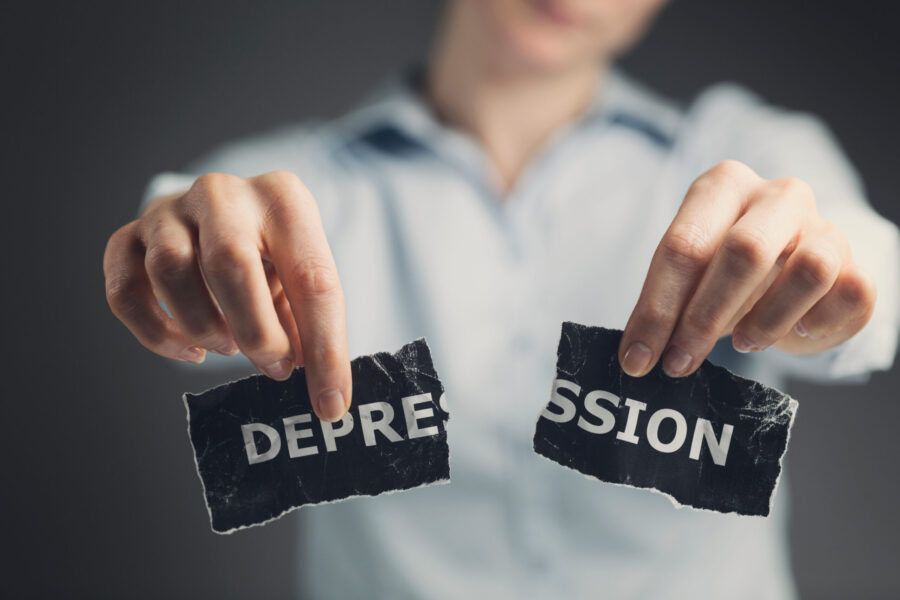Depression is a complex and often misunderstood mental health condition that affects millions of people worldwide. Despite its prevalence, there are still misconceptions surrounding depression, leading to confusion and stigma. In this article, we aim to clarify what depression truly is and dispel common misconceptions about the condition.
Understanding Depression
Depression, also known as major depressive disorder (MDD), is a mood disorder characterized by persistent feelings of sadness, hopelessness, and disinterest in activities once enjoyed. It goes beyond temporary feelings of sadness or grief and can significantly impair daily functioning and quality of life.
What Depression Is:
- Persistent Sadness: One of the hallmark symptoms of depression is a pervasive feeling of sadness that persists for weeks or months at a time, often with no apparent cause.
- Loss of Interest: Individuals with depression may lose interest in activities they once enjoyed, such as hobbies, socializing, or work-related tasks.
- Fatigue and Low Energy: Depression can manifest as extreme fatigue and low energy levels, overwhelming even simple tasks.
- Changes in Sleep Patterns: Depressed individuals may experience changes in sleep patterns, such as insomnia or excessive sleeping.
- Appetite Changes: Depression can affect appetite, leading to either significant weight loss or weight gain.
- Difficulty Concentrating: Concentration and decision-making may become challenging for individuals with depression, affecting their ability to perform tasks effectively.
- Feelings of Worthlessness: Depressed individuals often experience feelings of worthlessness, guilt, or self-blame, even when there is no rational basis for these emotions.
- Suicidal Thoughts: In severe cases, depression may lead to suicidal ideation or behavior, requiring immediate intervention and support.
What Depression Isn’t:
- Simply Feeling Sad: While sadness is a common symptom of depression, feeling sad occasionally does not necessarily indicate depression. Depression involves persistent and pervasive feelings of sadness that interfere with daily life.
- A Choice: Depression is not a choice or a sign of weakness. It is a complex biological and psychological condition influenced by a variety of factors, including genetics, brain chemistry, and life experiences.
- Just “Being Lazy”: Individuals with depression may appear lethargic or disengaged, but this is not due to laziness. Depression significantly impacts energy levels and motivation, making it difficult for individuals to engage in activities.
- Solvable by Positive Thinking Alone: While positive thinking and self-care strategies can be beneficial for managing depression, they are not a cure. Depression often requires professional treatment, such as therapy, medication, or a combination of both.
- Something to Be Ashamed Of: Depression is a medical condition, not a personal failure. It is essential to eliminate the stigma surrounding depression and encourage open dialogue and support for those affected.
Coping with Depression
Managing depression often requires a multifaceted approach involving various strategies:
- Seek Professional Help: If you suspect you or someone you know is experiencing depression, it’s crucial to seek help from a qualified mental health professional. Therapy, medication, or a combination of both may be recommended.
- Build a Support System: Surround yourself with supportive friends, family members, or support groups who can offer encouragement and understanding.
- Practice Self-Care: Engage in activities that promote physical and emotional well-being, such as exercise, healthy eating, adequate sleep, and relaxation techniques.
- Challenge Negative Thoughts: Cognitive-behavioral therapy (CBT) can help individuals identify and challenge negative thought patterns contributing to depression.
- Set Realistic Goals: Break tasks down into smaller, manageable steps and set realistic goals for yourself. Celebrate small victories along the way.
- Stay Connected: Maintain social connections, even when you don’t feel like it. Spending time with loved ones can provide much-needed support and distraction from depressive symptoms.
- Be Patient and Persistent: Recovery from depression takes time, and setbacks are normal. Be patient with yourself, and continue to prioritize your mental health.
Depression is a serious and debilitating condition that requires understanding, compassion, and appropriate treatment. By recognizing the true nature of depression and dispelling common misconceptions, we can foster greater empathy and support for those affected by this challenging mental health disorder. If you or someone you know is struggling with depression, don’t hesitate to reach out for help. You are not alone, and there is hope for recovery.

